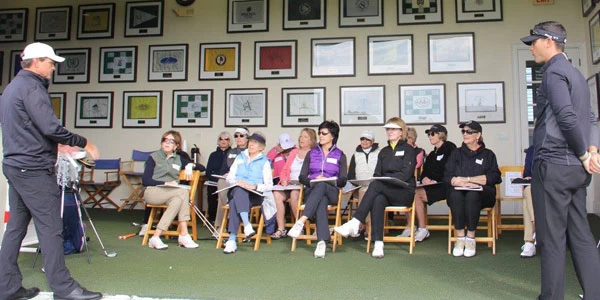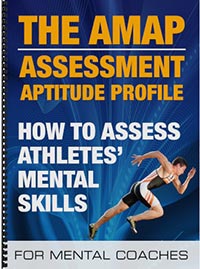
Help Athletes Stick To Mental Coaching
How do you help athletes adhere to mental training so they don’t give up if they do not see immediate results?
Athletes and parents often want the quick fix with mental training. They want you to solve slumps and low confidence in one session. But they don’t really understand the process…
Unfortunately, they might not fully commit to mental training if they don’t see immediate improvements…
Here’s what one mental coach asked on our survey:
“The athletes I work with are nearly always motivated to begin the mental training, but some let it lapse quite quickly. Other than seeing results from the mental training, which keep them on track, how can we encourage them to remain committed to the program until the results come?”
Keep in mind that if your athletes are looking for a quick fix and you do get them back on track quickly–after one or two sessions–they may be less committed to completing the program.
For example, I worked with a college baseball player that was struggling with his hitting. After only two sessions, he was back on track as “hitter of the week.” He never finished the remaining sessions.
With that said, what can you do to improve adherence to the mental training program with athletes who are less committed, but need it?
5 Tips to Help Athletes Adhere to Mental Training
- Offer programs, not one-shot sessions. We offer a package of sessions for athletes–one month is the minimum. By offering programs, they understand that it’s not a quick fix.
- Explain how mental training works. In your first session, you have to set the parameters for how mental training works. You should discuss what your athletes are required to do during the program.
- Give assignments between sessions. In the MGCP program, we use workbooks to help athletes preview or review the mental training lessons and ask they return the assignments prior to the next session.
- Involve parents and coaches in mental training. Parents and coaches have to be advocates of the program and often can keep athletes stay on-track.
- Use follow up post-performance tools. In the MGCP program, we use post-performance assessment tools to help athletes self-monitor their mental game. The act of self-monitoring helps they stay on track and committed to mental training.
You can learn about all these strategies and more in the MGCP course that runs three times per year.
Contact us with any questions you might have about the MGCP program.
Related Mental Coaching Articles
- Assessing Mental Training Effectiveness
- 4 Tips to Help Athletes Stay Committed to Mental Training
- Education Helps Athletes Accept Mental Training
Mental Coach Assessment System

If you help athletes improve their mental game and want to be more effective with helping them build mental toughness, but don’t have a proven system for identifying and assessing your athletes’ mental game, I can help you…
I view this assessment as a way to “interview” athletes before they come in for coaching–and to improve organization and speed up the coaching process. Today, I call it the Athlete’s Mental Aptitude Profile or AMAP for short. Now you too can learn how to use the AMAP Assessment system with your athletes…
The AMAP System teaches you how to easily identify your athletes’ mental game challenges, what mental game issues to look for when reading the AMAP, and how to do a summary of the AMAP. In addition, you’ll also get follow up questions to ask and how learn about how to drill down on relevant topics.
